They’re Doing It: Awe-Inspiring Black Female Entrepreneurs
Black female business owners are a booming economic force in the U.S. Here are nine women leading the charge.

Opinions expressed by Entrepreneur contributors are their own.
Black female-owned businesses are the fastest growing economic force in the U.S. The number of black women-owned businesses grew 67 percent between 2007 and 2012, outpacing the 27 percent growth rate for female-owned businesses, reports the U.S. Census Bureau. The rapid growth is particularly impressive and hard-won considering the challenges that black women face as entrepreneurs, including lack of startup capital, resources and loans, along with racial and gender discrimination within the largely white, male-dominated sectors of financing and technology.
In spite of considerable hurdles, black women entrepreneurs, such as Janice Bryant Howroyd, founder and CEO of Act 1 Group, and Cathy Hughes, founder and chairperson of Radio One, Inc., have made formidable gains. Yet, it would be remiss to acknowledge today’s successful African American female business owners without acknowledging the history of black female entrepreneurship in the U.S. For many black women during post-Emancipation, self-employment was the only economy they were allowed to participate in, and some women thrived, such as Madam C.J. Walker, who created specialized hair products for African Americans and became America’s first black self-made millionaire.
While we can’t (and ought not to) ignore the racial legacy that runs through the veins of American history, we can take this opportunity to celebrate these nine black female entrepreneurs who have not only earned a hard-won spot at the table but serve as inspirational lightning rods for all women.
Natalie M. Cofield, founder and CEO of Walker’s Legacy and Walker’s Legacy Foundation
Natale Cofield is the millennial founder and CEO of Walker’s Legacy, which started out as a lecture series for entrepreneurial women of color and has evolved into a resource and support organization with programming and professional development. Her pathway to Walker’s Legacy began at the age of 26, when she started her first company in consulting and business development and found herself struggling to be taken seriously in “the old boy’s network,” she recounts.
“One day I broke down crying to a friend, because I felt the odds were stacked against me, and he asked me an important question: “Who is your mentor?’ Outside of my mother, who was a serial entrepreneur and had been through many of the same experiences I had, there was no one who lived where I lived that served in that capacity for me,” Cofield says.
She looked for role models by reading biographies of women of color that she wanted to be like and was inspired by women, such as Madam C. J. Walker, America’s first female self-made millionaire who ran a hair and skin products business. She started her company, Walker’s Legacy, named after the entrepreneur who serves as Cofield’s touchstone, to address “the lack of representation of women of color in business media by telling and sharing our own stories.” What began as a lecture series of women talking about their entrepreneurial stories, has evolved into “local ecosystems of Walker’s Legacy programs, events conferences and partnerships that are designed to empower women.”
One area of crucial support Walker’s Legacy boasts is forging access to startup capital. “Startup capital is critically important and often limited among black women, specifically because of single-income households and existing prevalent income inequality, despite the fact that black women are the most educated female bracket as it relates to the percent of women with undergraduate degrees as a percentage of total by ethnicity,” Cofield explains.
Some of the organization’s past and present initiatives include a financial planning and entrepreneurship program for single mothers of color, an entrepreneurial pitch competition, an online business accelerator program and a national mentorship program. In honor of Black History Month, Walker’s Legacy launched a video and content series #BEENBOSS, profiling the contributions of black women across a variety of fields, including politics, health and business.
Walker’s Legacy is expanding nationally, launching in 10 cities across the nation with the goal to be in 20 U.S. cities and two international markets by early 2019.
“I feel every day that I am doing what I hoped to do,” Cofield says. “Walker’s Legacy is the embodiment of all the mentorship and advice I received from my mother and everything I wished I had when I started my first company at 26, at scale, to empower millions of other women to see themselves as business women, to connect with business women and be supported as business women.”
Related: Why Women Entrepreneurs Have a Harder Time Finding Funding
Tiffany Aliche, founder and CEO of The Budgetnista and the Live Richer Academy
Tiffany Aliche runs two successful business, her speaking, teaching and writing business,The Budgetnista, and the Live Richer Academy, an online school about financial literacy. Considering her upbringing, it’s not surprising she makes a living talking about money. Financial education was just a way of life for Aliche growing up.
Born and raised in a small, rural village in Nigeria, her father worked as a financial professional. Each week, he would sit Aliche and her four sisters down for “money lessons.”
“He still shares awesome financial lessons with me,” she says.
Those childhood lessons were a life raft for Aliche when she found herself in unexpected financial straits. During the Recession in 2009, at the age of 29, Aliche lost her job as a preschool teacher. She hadn’t seen it coming. “Before that, I thought I had it all financially figured out,” Aliche says. On a tight teacher’s salary of $39,000 a year, she had managed to save $40,000 in two and half years, so at the age of 25, she was able to purchase her first home.
By the age of 31, Aliche was still jobless with a $200,000 mortgage, $50,000 in student loans and $35,000 in credit card debt. She was losing her home to foreclosure, had drained her retirement account and had moved back in with her parents.
“I felt hopeless and fell into a deep funk,” she shares.
However, she hadn’t lost her know-how. “I realized that despite my situation, I knew the financial basics, how to budget and save,” she says. “I learned them from my parents.”
She used her know-how to manage her unemployment money and supplemented it by babysitting, tutoring and other odd jobs. Before long, her friends, also hit by the recession, noticed her progress. “Before long I was coaching them, then friends of friends. Then I started charging, $50, then $75, then $100 a session.”
The idea for The Budgetnista and the Live Richer Academy was born. Realizing she could make more teaching in a classroom setting vs. one-on-one, she reached out to the nonprofits she had volunteered with while unemployed and landed a contract with the United Way teaching finance and budgeting classes.
“If you would have ever told struggling, post pre-school teacher Tiffany that one day I’d run a million-dollar-a-year business, I would never believed it,” Aliche says.
As for entrepreneurs still building their businesses, she counsels: “Falling is not failing. I doubted myself so much when I started my businesses, because I kept making mistakes. Now I understand that mistakes are and were necessary parts of the journey. You truly stumble and bumble toward success. The trick is to realize that mistakes are meant to teach you how to maintain the dreams you seek. The lessons you learn give you the resources you need to live a richer life.”
Related: 4 Things Women Entrepreneurs Need to Know Before Approaching Angel Investors and VCs
Jennifer Lambert and Jihan Thomas, co-founders of SWIVEL Beauty
SWIVEL Beauty co-founders Jennifer Lambert and Jihan Thomas knew nothing about tech and had no prior experience in entrepreneurship before becoming tech entrepreneurs. What Lambert, a Harvard educated lawyer, and Thomas, a University of Pennsylvania-educated magazine editor, had in common was the understanding that there was a need in the black hair space they could fill. The women created an app that connects women of color to hair professionals all over the U.S.
“Hair is a big deal for black women in myriad ways that are impossible to address in just a few sentences,” Lambert and Thomas say. “As black women, we spend a ton of time and money on our hair, yet there’s no easy way for us to find the right professionals.”
The two women started building SWIVEL just as other beauty tech products were taking off (e.g., booking apps and blow dry bars). But they felt as though none of these apps addressed the hair needs of black women in a truly authentic way.
“Most only had photos of women with long, straight hair, and none of them even indicated whether a salon could do black hair, which is crazy when you consider that black women spend nine times more on hair care than any other ethnic group,” the women explain.
The co-founders were tired of having their hair care needs overlooked or treated as an afterthought. While neither of them had a traditional business background, they had the personal experience to know that there was a problem they could solve.
“As two black women, we struggled to find a hairstylist when we moved cities (for school, jobs, etc.) or when we simply wanted to try someone new in a city we had lived in for years,” they say. “Our options always felt so limited — there was no easy way to figure out who was good. We’d had enough of soul-crushing, hair-breaking, money-wasting trial-and-error. We’ve even dealt with awkward moments when a salon couldn’t handle our “ethnic’ hair, and put up with bad service, long waits, all in the name of beauty. We knew there had to be a better way but couldn’t find a solution that met our needs, so we decided to create one.”
The newcomers entered a steep learning curve. One of their first lessons as entrepreneurs was that everything takes longer and costs more than expected. After a few years in, the duo have grown better about setting realistic milestones and budgets. The best advice the two have for other newbies and aspiring entrepreneurs to be?
“Don’t wait — go for it now. We spent so much time talking about our dreams for SWIVEL before we really got serious about taking action,” they say. “You’ll never feel ready, but while you’re waiting and debating, someone else is getting started. Also: Don’t be afraid to ask for help. We learned pretty quickly how much we didn’t know when we launched SWIVEL, but we haven’t been shy about asking for help and bringing on key advisors that only make our team stronger.”
Related: 11 African Entrepreneurs Who Are Changing the Business LandscapeArlan Hamilton, founder and managing director of Backstage Capital
Arlan Hamilton’s background is not typical of other founders and managing directors of venture capital groups. The 36-year-old founder and managing director of Backstage Capital has background in the music industry — she’s worked with Toni Braxton and currently manages a singer with Atlantic Records — however, her vantage point as an outlier provides the precise sort of disruption that the largely white heterosexual male startup financing world needs.
Hamilton founded Backstage Capital to give underrepresented entrepreneurs that much-needed seed and early-stage funding. The website reads: “Less than 10 percent of all venture capital deals go to women, People of Color, and LGBT founders. Other VCs see this as a pipeline problem. We see it as the biggest opportunity in investment.”
For Hamilton, a gay woman of color, giving underrepresented entrepreneurs an opportunity is personal. She became highly aware of the funding hurdles minorities face when she was doing branding work for some startup founders who faced repeated funding struggles related to their race and gender.
“White male investors across the board said they ‘didn’t understand’ or it ‘wasn’t for them,” she says. “I spent a few minutes taking it personally, but then I realized that there was an opportunity to capitalize on the fact that a lot of people are missing the boat.”
She took what was other people’s oversight and turned it into her gain. Founded in 2015, Backstage Capital has reviewed proposals from more than 1,500 companies, and invested more than $2 million in seed money in approximately 50 companies.
Hamilton has been able to stick to her mission of investing in minority founders. According to her, “65 percent of [our] founders are people of color, 65 percent are women and 35 percent are women of color.”
Her path to success hasn’t been without its bumps. Hamilton shares, “I have walked into a room in Silicon Valley where I was handed keys because I must be the valet, and jackets because I must be checking people’s coats. This has happened maybe half a dozen times in the past two years. There are a lot of surreal moments when I have to say to myself: You’re a venture capitalist. You have a multi-million-dollar fund. You’ve invested in 40 companies. But you are also a black woman in America. So you’re going to be handed someone’s jacket when you walk into a fancy situation.“
She uses the drawbacks and challenges to fuel her drive and sees her position as one where she can educate investors. “Today, one partner holds the purse strings, but one day, it will be more equal,” she opts to believe.
In the meantime, Hamilton has her own goal: She aims to have 50 percent of her founders be women of color by the time her investment portfolio reaches 100 companies, and it’s looking good.
Related: 10 of the Most Influential African-American Inventors
Janice Bryant Howroyd, founder and CEO of ACT 1 Group, Inc.
Janice Bryant Howroyd receives plenty of kudos for being the first African American woman to run a billion-dollar business, and deservedly so. The 65-year-old entrepreneur is the founder and CEO of Act 1 Group, Inc. a workforce and consultancy agency based out of Las Vegas with contracts with 17,000 clients in 19 countries.
However, the native of Tarboro, N.C., who grew up during the heart of the civil rights movement, said in an interview with CNBC that “being the first African American woman to achieve anything in 2016 is not an accomplishment. … While I accept that applause with all the gratitude I can muster, the best thing I can be applauded for is simply being a woman building a great business.”
Howroyd grew up as one of 11 children, and she learned about tbe importance of mentorship and working as a team early on. “My sister Sandy was my appointed guardian angel,” Howroyd said, “so it was up to her to see that I’d gotten my homework done, my hair was done and my thoughts and process were in line with what the family wanted. We were very organized.”
After college, she moved to Los Angeles where her brother-in-law got her a job at Billboard, where she found she had a knack for leadership and solving problems. “I would revert to what I do well, which is strategize. I love to look at a problem, break it apart, find the better potential, knowing when to eliminate what doesn’t need to be there,” she explained.
The self-made woman worth an estimated $420 million went off on her own and opened a small full-time staffing agency in Beverly Hills, Calif., in 1978. She borrowed $900 from her mother, and with a single desk and a phone, she was able to build the business. She changed her job placements from full time to temporary when she saw that was where the needs were, and good word-of-mouth helped her business grow.
Early on, she was able to compete with the larger employment agencies by training her prospective hires to meet employer expectations and be a better fit.
As opportunities arose, Howroyd kept growing her company. When clients began asking for screening checks on the employees Act 1 was sending them, it gave rise to a background and screening division.
The entrepreneur, who has been married for nearly 40 years with two grown children, has spoken about her admiration for business leaders, such as Madam C.J. Walker, who have built a community of support and education around their businesses that extend beyond their lifetimes. “That’s the type of success I admire,” she said.
Related: 10 African Online Entrepreneurs to Watch in 2017
Tracy Reese, founder, president and designer of Tracy Reese Designs, Inc.
Designer Tracy Reese truly stepped into the national spotlight after former First Lady Michelle Obama gave her bold and feminine designs some serious visibility. More specifically, when Obama wore a sleeveless pink and teal dress designed by Reese at the 2012 Democratic National Convention.
But, as a young girl, the Detroit native didn’t have her sights set on fame. She loved to sew alongside her seamstress mother, and eventually graduated from the Parsons School of Design in New York City. With a loan from her father, she launched her first fashion line. The company failed, and Reese went to work for other companies. She’s worked at illustrious fashion houses, including Perry Ellis, where she served as design director for one of its brands. However, she never relinquished her dream of her own fashion line. To gear up, she got advice from experienced designers, such as Marc Jacobs, as well as counsel from financial investors.
In 1997, an older and wiser Reese tried for the second time and relaunched Tracy Reese to rave reviews and much success. Her distinctively colorful, fun clothing is carried in high-end retail stores, including Bloomingdales and Neiman Marcus, and boasts Sarah Jessica Parker and Taylor Swift among its fans.
She also launched a more casual, everyday clothing line, Plenty by Tracy Reese. In 2015, she opened a New York store location, and the 54 year old’s design empire has expanded to include footwear, home collections and nail polish, along with her fashion lines. Now that she’s reached the height of success, the founder, president and designer of Tracy Reese Designs, Inc. says she’d like to explore other sides of herself, including helping women and designers of color in her industry.
Related: What African Entrepreneurs Can Teach Us About Overcoming Challenges
Cathy Hughes, founder and chairperson of Urban One, Inc.
Seventy-year-old Cathy Hughes isn’t a household name, but the founder and chairperson of Urban One, Inc. (formerly Radio One) ought to be. Hughes is the first African-American woman to lead a publicly traded media company and one of the wealthiest self-made black women in America. Urban One, Inc. isn’t just a radio station. It’s 56 stations, plus all of its subsidiaries, including TV One, a cable television network, and publishing websites, such as The Daily Grind and Hello Beautiful.
The media mogul grew up in a household of six people and one bathroom in Omaha, Neb. “I did my radio show every morning in the mirror with a toothbrush, and everyone thought at that time there was something wrong with me. I mean, there are no black people in radio, particularly no black women,” she said.
She became a black woman in radio at an African-American owned station in Omaha and moved to Washington, D.C., in 1971 to teach at the School of Communications at Howard University, where she served as the general sales manager at Howard University Radio, where she raised the sales revenue from $250,000 to $3 million during her first year. Hughes became known for her chilled out signature format known as the “Quiet Storm” during the mid-1970s. As Hughes told it, “The city had a sizable population of single, unattached young people who still wanted to feel good about a Friday night or a Saturday night, even if they were by themselves. So I structured a format.”
The format played soothing songs from artists such as Sam Cooke, Marvin Gaye and Nat King Cole, hosted by a silky-voiced DJ. The format boosted her station to number one in D.C. and the format became popular at radio stations across the country.
She moved on to manage another station, and it was there when she decided to buy her own radio station, on what was essentially a dare. What happened was the station needed additional financing and had enlisted her help. She agreed, on the condition she’d be given a stake in the company. One of the investors said in response, “If you think that you’re smart enough to own a radio station, you should do it for yourself.”
The investor might not have been serious, but she was. Hughes went to 31 banks for a loan — it was the 32nd bank that took a chance. In 1980, she purchased WOL-AM, in Washington, D.C. It wasn’t all smooth sailing. She went homeless while raising her son.
“At 17, my son went off to college, and I was in a radio station sleeping in a sleeping bag and washing up in the bathroom,” Hughes said of the time. “I sacrificed my car and my house. I was willing to give up everything to make a return on my lender’s investment.”
Her grit and determination paid off. Hughes innovated another popular radio format “24-Hour Talk from a Black Perspective” and served as the station’s morning show host for 11 years, buying radio stations across the country. In 1999, what was then Radio One went public, and in 2004, she also launched TV One, a cable network that focuses on lifestyle and entertainment for African Americans.
Success has earned her numerous prestigious award and recognitions, and the pragmatic Hughes has straightforward advice for up-and-coming entrepreneurs about developing trust: “[Lenders] are investing in the person. Once your lenders become comfortable with you and know you come to them with integrity and commitment, they will go for the ride, even when they might think what you have isn’t the best idea. Because they are banking on you.”
Related: 5 Things You Should Know About America’s First African-American Billionaires
Jessica O. Matthews, founder and CEO of Uncharted Power
Jessica O. Matthews‘s first invention was a soccer ball called Soccket that generates electricity for an attachable reading lamp. For an hour of soccer play, you get three hours of light. The invention not only has uses as a teaching tool, but it also has a practical use in countries such as Burundi, where only 4 percent of the population has access to the electrical grid. The company has already produced a second energy-generating toy, the Pulse jump rope, for countries, where girls don’t typically play soccer. The jump ropes are produced in-house, on 3D printers. “After 15 minutes of jumping rope, which is good for you, it will give you six hours of LED light or a 50 percent iPhone charge,” she says.
Matthews is the founder and CEO of Uncharted Power (formerly Uncharted Play), a company that creates toys that generate electricity. She isn’t a scientist nor does she have a science background. She came up with the idea for Soccket in 2008, while an undergraduate at Harvard University.
The daughter of Nigerian immigrants who had grown up in Poughkeepsie, N.Y., says she was at her aunt’s wedding in Nigeria when the power went out. Diesel generators were brought out, and the noxious fumes bothered Matthews. However, using generators is a way of life in the country, where the energy supply is unreliable.
She came up with the idea of the Soccket, because her relatives and friends in Nigeria were soccer fans. A soccer ball that could be an energy source seemed like a natural fit.
Matthews’s idea generated excitement, and she was able to raise more than $92,000 on Kickstarter to manufacture and ship the product. However, there were bumps with the first product — reports of shoddy manufacturing and balls that broke after three days. Mistakes were made, Matthews admitted, and she took it in stride and published a letter on Kickstarter in 2014 addressing the mistakes and what they were going to do about it, including replacing previously distributed balls with new and improved versions. (Whether the company followed through with this pledge remains to be seen, according to some donor comments.)
However, it was at that point that Matthews made a pivot. The company wasn’t going to make amazing soccer balls or jump ropes, however it could partner with companies that did and install their renewable energy technology into products with a track record.
The still-young company has raised $7 million for its series A funding in 2016, a remarkable amount considering that black female entrepreneurs receive very little venture capital in the tech space, reports CB Insights.
“The average amount a black woman will raise over the course of her life is $34,000,” Matthews said. “We raised $7 million — the average series A that people raise. And by people, I mean white, straight males. Why is this exciting? We’re in the game now. I’m excited that I’m playing on an equal level as the people that look opposite of me in Silicon Valley.”
Uncharted Power’s longer term plan is to partner with product manufacturers across industries, putting the recharging technology in everyday products we use, such as strollers and shopping carts here in the U.S.
Related: 5 Organizations Helping Minority Startup Founders Succeed
Black female-owned businesses are the fastest growing economic force in the U.S. The number of black women-owned businesses grew 67 percent between 2007 and 2012, outpacing the 27 percent growth rate for female-owned businesses, reports the U.S. Census Bureau. The rapid growth is particularly impressive and hard-won considering the challenges that black women face as entrepreneurs, including lack of startup capital, resources and loans, along with racial and gender discrimination within the largely white, male-dominated sectors of financing and technology.
In spite of considerable hurdles, black women entrepreneurs, such as Janice Bryant Howroyd, founder and CEO of Act 1 Group, and Cathy Hughes, founder and chairperson of Radio One, Inc., have made formidable gains. Yet, it would be remiss to acknowledge today’s successful African American female business owners without acknowledging the history of black female entrepreneurship in the U.S. For many black women during post-Emancipation, self-employment was the only economy they were allowed to participate in, and some women thrived, such as Madam C.J. Walker, who created specialized hair products for African Americans and became America’s first black self-made millionaire.
While we can’t (and ought not to) ignore the racial legacy that runs through the veins of American history, we can take this opportunity to celebrate these nine black female entrepreneurs who have not only earned a hard-won spot at the table but serve as inspirational lightning rods for all women.
 Walker’s Legacy | YouTube
Walker’s Legacy | YouTube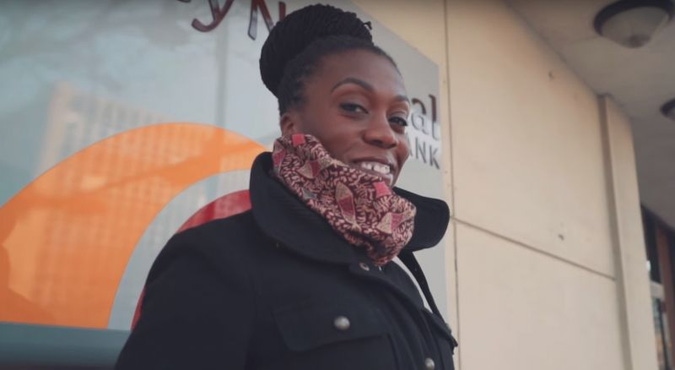 The Budgetnista | YouTube
The Budgetnista | YouTube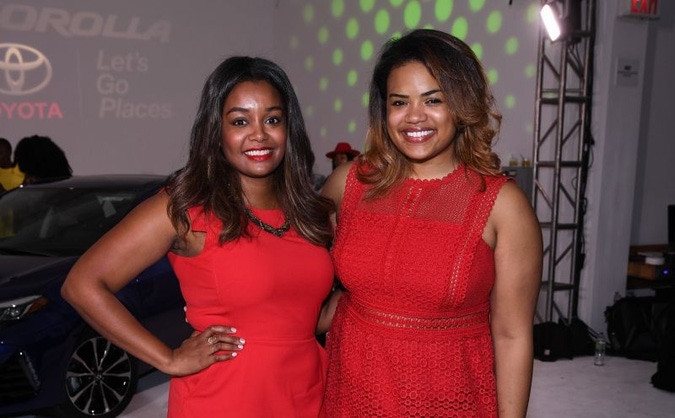 Dave Kotinsky | Getty Images
Dave Kotinsky | Getty Images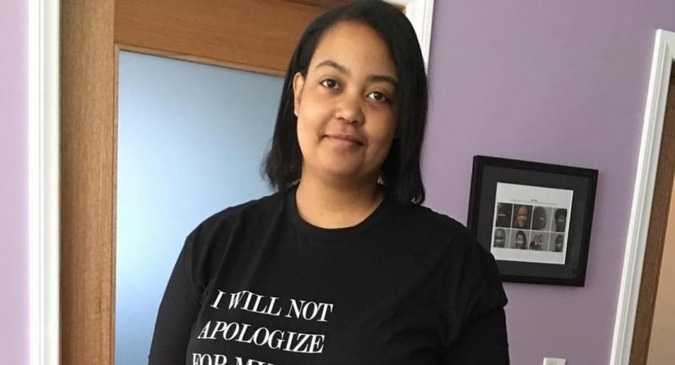 arlanwasherem | Instagram
arlanwasherem | Instagram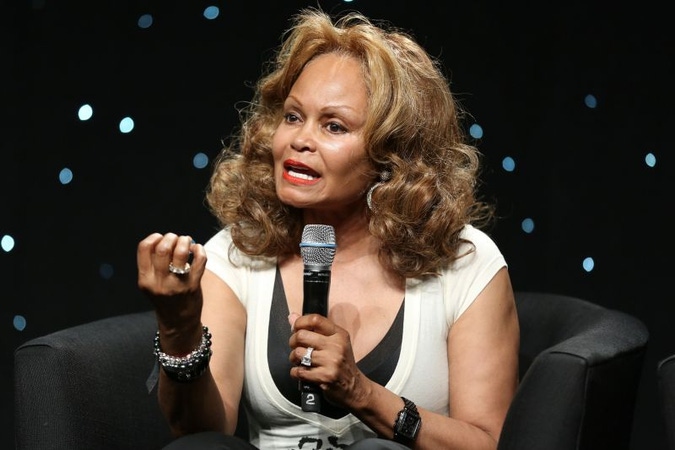 Chelsea Lauren | Getty Images
Chelsea Lauren | Getty Images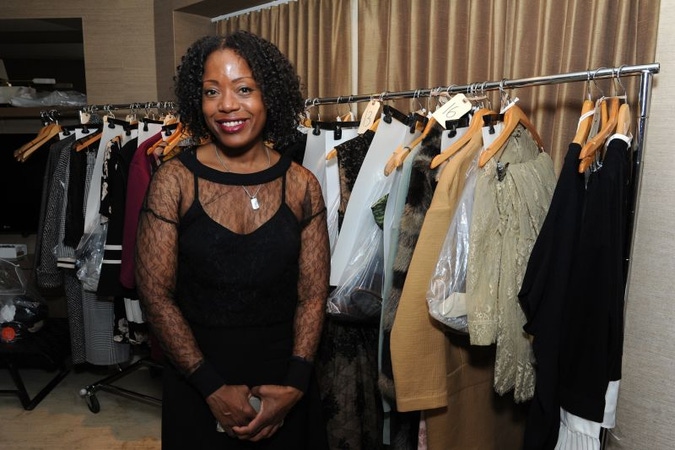 Craig Barritt | Getty Images
Craig Barritt | Getty Images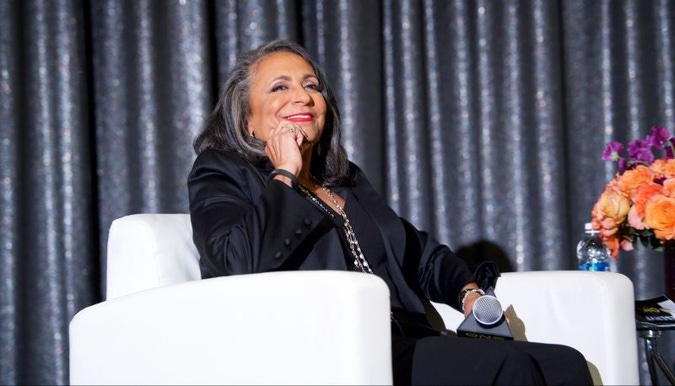 Earl Gibson III | Getty Images
Earl Gibson III | Getty Images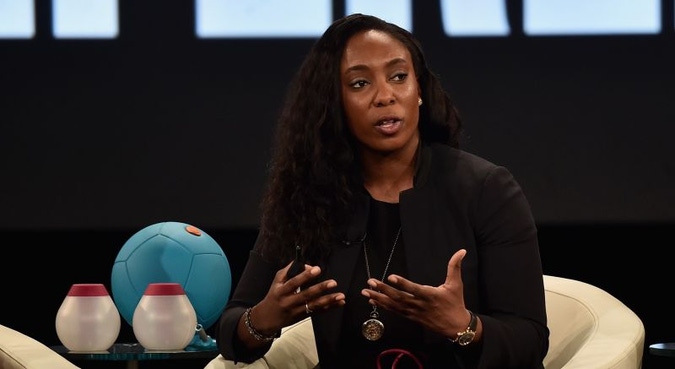 Alberto E. Rodriguez | Getty Images
Alberto E. Rodriguez | Getty Images




